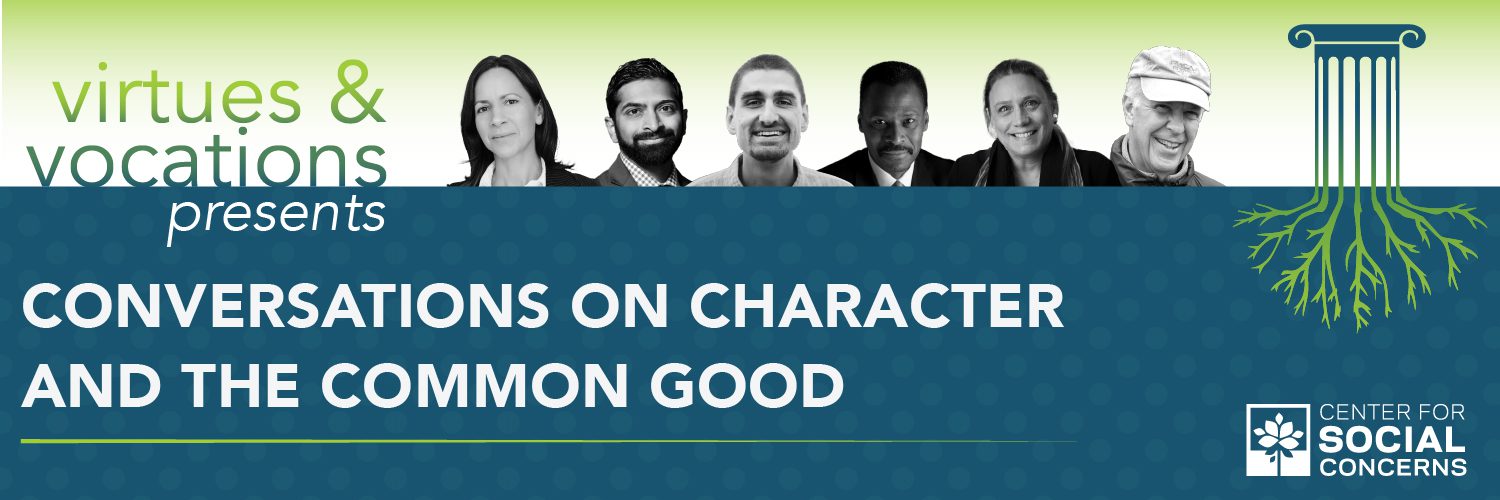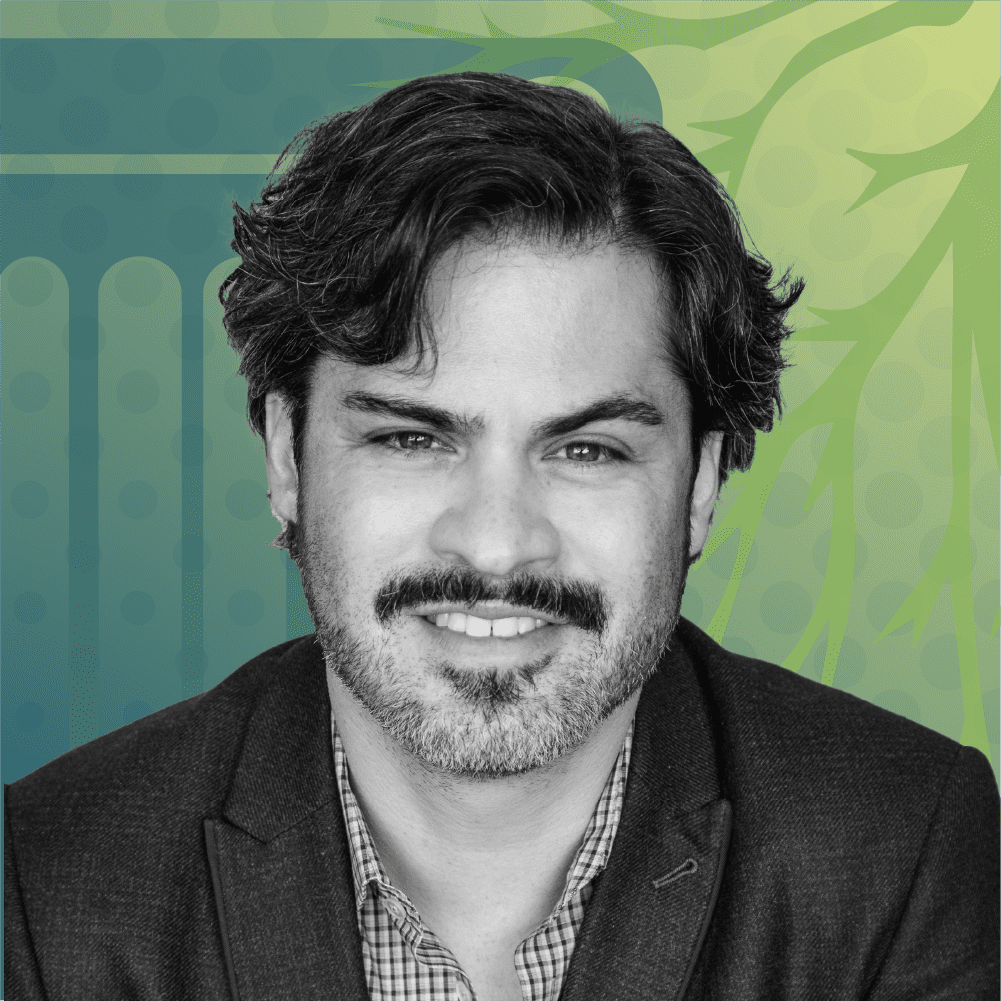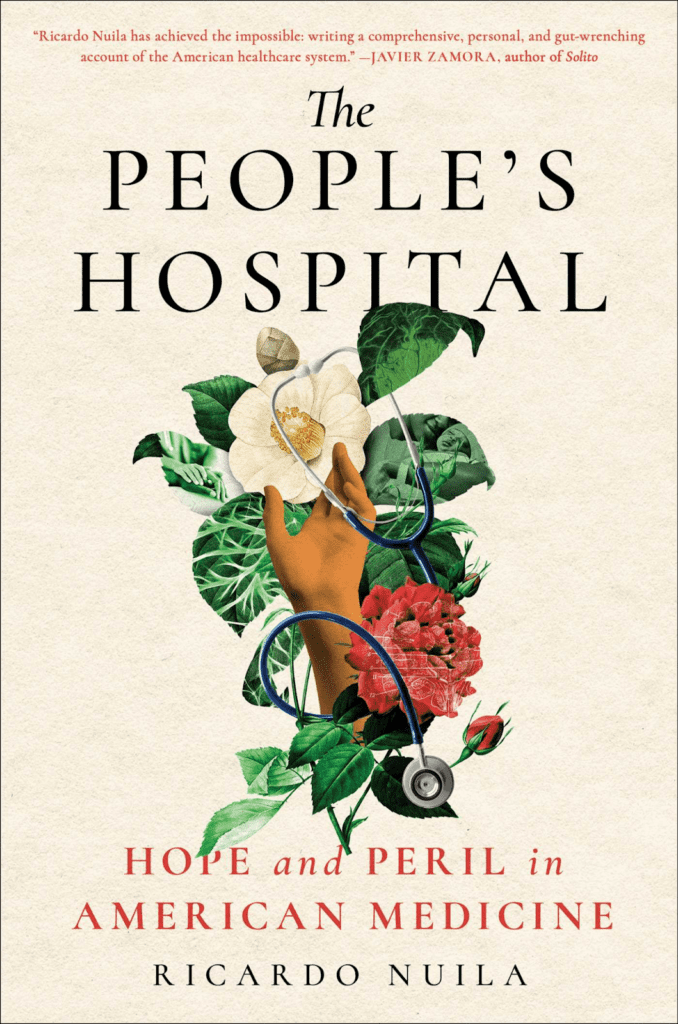Ricardo Nuila on Hope & Peril in American Medicine

As part of the Virtues & Vocations series Education for Flourishing: Conversations on Character & the Common Good, we are pleased to welcome author & physician Ricardo Nuila. Dr. Nuila is the Director of the Humanities Expression and Arts Lab (HEAL) at Baylor College of Medicine.
Meet the Speaker: Ricardo Nuila, MD

Ricardo Nuila, MD works as an internal medicine doctor and hospitalist in his hometown of Houston. It’s hard for him to imagine practicing medicine anywhere else but at a safety-net hospital, where the focus is a person’s healthcare problem.
His experiences as a doctor give his writing its fuel. He focuses mostly on health disparities, how policies affect real people, and the interface between art and medicine. He has written for Texas Monthly, VQR, The New York Times Sunday Review, The Atlantic.com, and The New England Journal of Medicine. He also covered Hurricane Harvey and the COVID pandemic for The New Yorker.
His short stories have appeared in the Best American Short Stories anthology as well as in McSweeney’s and other literary magazines. The New England Review published one of his short stories and awarded him its inaugural Emerging Writer’s Award.
He also directs the Humanities Expression and Arts Lab (HEAL) at Baylor College of Medicine. This lab develops educational materials and experiences that weave the arts and humanities into medical education.
View the Live Event
Monday, February 26, 2024 12:00 pm

As part of the Virtues & Vocations series Education for Flourishing: Conversations on Character & the Common Good, we are pleased to welcome author & physician Ricardo Nuila. Dr. Nuila is the Director of the Humanities Expression and Arts Lab (HEAL) at Baylor College of Medicine.
Book: The People's Hospital: Hope and Peril in American Medicine

From the publisher: Here, we follow the lives of five uninsured Houstonians as their struggle for survival leads them to a hospital that prioritizes people over profit. First, we meet Stephen, the restaurant franchise manager who signed up for his company’s lowest priced plan, only to find himself facing insurmountable costs after a cancer diagnosis. Then Christian—a young college student and retail worker who can’t seem to get an accurate diagnosis, let alone treatment, for his debilitating knee pain. Geronimo, thirty-six years old, has liver failure, but his meager disability check disqualifies him for Medicaid—and puts a life-saving transplant just out of reach. Roxana, who’s lived in the community without a visa for more than two decades, suffers from complications related to her cancer treatment. And finally, there’s Ebonie, a young mother whose high-risk pregnancy endangers her life. Whether due to immigration status, income, or the vagaries of state Medicaid law, all five are denied access to care. For all five, this exclusion could prove life-threatening.
Each patient eventually lands at Ben Taub, the county hospital where Dr. Ricardo Nuila has worked for over a decade. Nuila delves with empathy into the experiences of his patients, braiding their dramas into a singular narrative that contradicts the established idea that the only way to receive good health care is with good insurance. As readers follow the moving twists and turns in each patient’s story, it’s impossible to deny that our system is broken—and that Ben Taub’s innovative model, where patient care is more important than insurance payments, could help light the path forward.
For more information, please visit the publisher’s website.
NPR Interview: “This safety-net hospital doctor treats mostly uninsured and undocumented patients”
Interview Summary: As a doctor in a so-called “safety-net” hospital, Ricardo Nuila‘s daily practice looks quite different from that of his colleagues who work in private or not-for-profit hospitals. That’s because safety-net hospitals treat everyone who walks in the doors — regardless of insurance status.
Many of Nuila’s patients at Houston’s Ben Taub Hospital are dealing with serious illnesses as a result of not being able to get access to basic preventive care. “What we see is that patients’ lack of health care has meant that the disease has been able to grow within their bodies,” he says. “Their cancer is widespread, or we find that they have an infection that has not been treated or discovered.”
In his new book, The People’s Hospital, Nuila writes about his experiences at Ben Taub, which is the largest safety-net hospital in Houston. He says despite the hospital’s budget constraints, the doctors and nurses there still manage to provide quality health care. By limiting the number of patients a practitioner can see in a day, Ben Taub allows physicians to spend more time with their patients than is typical.
“My cap is 15 patients in one day,” Nuila says. “That’s compared to some of my colleagues in the private world, who I’ve heard admit up to 24 patients in one night, or don’t carry a cap.”
Because resources are tight at Ben Taub, there is an emphasis on using them mindfully, Nuila says. Instead of ordering an MRI with the push of a button, for instance, he might talk to the radiologist directly, to find out if extra imaging is really called for. “There are benefits to further discussion between medical professionals about emergencies and how to deal with these emergencies,” he says.
Overall, Nuila says, working at a safety-net hospital allows him to keep his focus on medicine: “I like that I have the time to be able to hear my patients’ stories, that I don’t have to think about billing all the time, that I can sit with them and hear about why they came to the hospital and learn about their lives — and that, no matter what, we are going to be thinking about how best to help them, regardless of whether they have insurance or not.”
To listen to the interview, please visit NPR’s website.
Where Will the Medical Misfits Go?
From the New York Times Podcast: People with health insurance tend to think of safety-net hospitals the way airline travelers think of the bus: as a cheaper service they would use only if they had to. But without these essential hospitals — which specialize in the care of our country’s most medically and financially vulnerable, particularly the uninsured — our entire health care system would be in danger.
To listen to the podcast episode, please visit the New York Times website.
